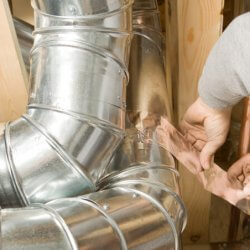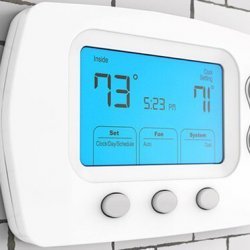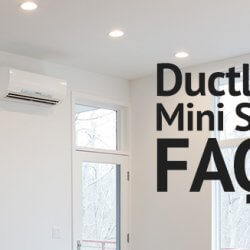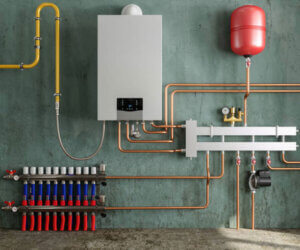
Heating your home during cold months doesn’t have to drain your wallet or harm the environment. With the right maintenance and repair strategies, you can improve your furnace’s performance and reduce energy consumption. This guide provides essential energy-efficient furnace repair tips to help you save money and maintain a comfortable home.
To learn more or schedule furnace repair services in the St. Louis area, contact the heating and air conditioning experts at Galmiche & Sons today.
Why Energy Efficiency Matters in Furnace Repairs
An energy-efficient furnace operates more effectively, lowering utility bills and reducing your home’s carbon footprint. Addressing furnace issues promptly can prevent:
- Higher Heating Costs: Inefficient systems consume more energy to produce the same amount of heat.
- Inconsistent Temperatures: Poor efficiency may result in uneven heating throughout your home.
- Premature Wear and Tear: Struggling furnaces are more likely to experience breakdowns, shortening their lifespan.
Improving energy efficiency through targeted repairs is a smart investment in both comfort and cost savings.
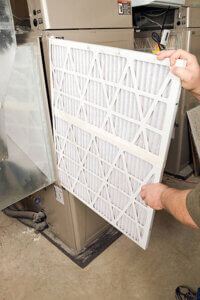
Key Energy-Efficient Furnace Repair Tips
1. Clean or Replace Air Filters Regularly
Dirty air filters block airflow, forcing your furnace to work harder. To maintain efficiency:
- Inspect filters monthly during peak heating seasons.
- Replace or clean filters every 1-3 months, depending on usage and type.
A clean filter ensures optimal airflow, reducing strain on the furnace.
2. Seal Air Duct Leaks
Leaky air ducts can cause heated air to escape, wasting energy. To address this:
- Inspect ducts for visible holes or loose connections.
- Use metal-backed tape or mastic sealant to close gaps.
- Consider professional duct sealing for extensive leaks.
Sealing leaks ensures warm air reaches all areas of your home efficiently.
3. Calibrate Your Thermostat
An improperly calibrated thermostat can lead to over- or under-heating, wasting energy. To ensure accuracy:
- Check thermostat settings and recalibrate if necessary.
- Upgrade to a programmable or smart thermostat for precise control.
- Set lower temperatures during sleeping hours or when the home is unoccupied.
Efficient thermostat management helps reduce unnecessary energy usage.
4. Inspect and Repair Blower Components
The blower motor circulates heated air, and a malfunction can hinder efficiency. Key steps include:
- Cleaning the blower assembly to remove dust and debris.
- Replacing worn belts or lubricating moving parts.
- Upgrading to a variable-speed blower motor for improved energy savings.
5. Address Burner Issues
A dirty or misaligned burner can reduce combustion efficiency. For safe and effective operation:
- Schedule professional cleaning and adjustments annually.
- Check for yellow flames, which indicate improper gas-to-air ratios.
6. Insulate Your Furnace and Ducts
Insulation prevents heat loss, ensuring your system operates efficiently. To maximize energy savings:
- Wrap furnace pipes and ducts in insulation materials designed for HVAC systems.
- Ensure your attic and walls are well-insulated to complement furnace efficiency.
7. Upgrade to Energy-Efficient Components
If repairs aren’t enough to optimize efficiency, consider upgrading your furnace and other components of your system:
- High-Efficiency Filters: Capture smaller particles and improve airflow.
- Condensing Furnaces: These units use secondary heat exchangers to reclaim energy.
- Zoning Systems: Direct heat to specific areas, reducing unnecessary energy usage.
Benefits of Energy-Efficient Furnace Repairs
Implementing energy-efficient furnace repair techniques provides numerous advantages, including:
- Lower Utility Bills: Reduced energy consumption translates to significant savings over time.
- Improved Comfort: Consistent heating eliminates cold spots and enhances overall warmth.
- Environmental Impact: Energy-efficient systems decrease greenhouse gas emissions.
- Extended Furnace Lifespan: Repairs reduce strain on components, preventing premature failures.
FAQs About Energy-Efficient Furnace Repair
How often should I schedule furnace maintenance?
Can I improve energy efficiency without professional help?
Is it worth upgrading to a high-efficiency furnace?
What’s the best way to reduce energy usage during winter?
Do energy-efficient repairs pay off in the long term?
Contact Galmiche & Sons for Energy-Efficient Furnace Repairs in St. Louis
When it comes to energy-efficient furnace repair, trust the experts at Galmiche & Sons. With over 70 years of experience serving the St. Louis area, we specialize in optimizing HVAC systems for maximum efficiency and comfort. Our skilled technicians are ready to inspect, repair, or upgrade your furnace to ensure it operates at its best.
Call Galmiche & Sons today to schedule your appointment or learn more about our energy-efficient heating solutions. Let us help you save money and keep your home comfortable year-round.



